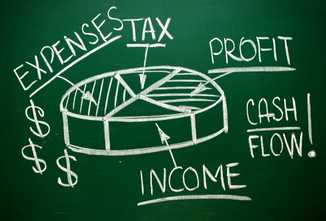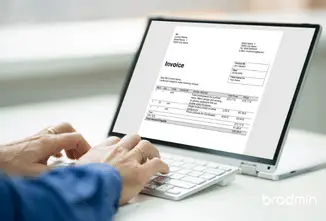Everything concerning late payments falls under the 1998 Act of The Late Payment of Commercial Debts.
This came into force in November of that year, and since then, it has been slightly amended to fall into the European Directive, although it remains the same.
One essential point about this law is that it applies to commercial debt, although it is not exclusive to Limited Companies. Sole traders, freelancers, and other entrepreneurs can use the law.
This law has two primary purposes; the first is to compensate the creditors for any late payments of debts, and the second is to deter any late payments.
It applies to commercially supplied goods and services only, where the terms and conditions do not have an interest provision.
So, in brief, the law states that invoices that are not paid on time entitle the business owner to claim interest compensation
Additionally, if the invoice was placed after 16th March 2013, you can also claim reasonable costs for collecting the debt.
Interest, in this case, can be claimed at a rate of 8% above the Bank of England’s base lending rate, plus a compensation rate of between £40 and £100 for each invoice.
What is a reasonable late payment fee?
According to the law, the statutory interest rate is usually 8% plus the business-to-business flat rate for transactions set by the Bank of England.
For example, the current Bank of England’s base rate is 0.1%, which means that you can charge an 8.1% interest rate from the day the invoice becomes overdue.
This is a reasonable late payment fee. However, you will need to send your debtor another invoice that shows how much you are charging them. It is, however, impossible to set a different fee from what you have expressed on the contract.
Additionally, you can claim debt recovery costs for late payments, which is usually a fixed sum for the cost of recovering the late payment on top of the interest you are already charging.
The amount allowed is usually dependent on the amount of debt and is charged once per payment.
As per the late payment legislation, this is how much you can claim;
- For debts up to £999.99 – £40
- For debts up to £9,999.99 – £70
- For debts that amount to £10,000 and above – £100
Why should you charge late payment fees?
Most companies charge late payment fees for many different reasons, such as;
- They would wish to be proactive about cash flow – if you have repeatedly asked them to pay, but you aren’t getting anywhere, the process is pretty draining on your business, and this could help them pay you immediately.
When you are strict with your payment policies, the chances are that you might be paid earlier, before other businesses they are probably working with.
- It demonstrates professional ethics – when you have a late payment policy, you demonstrate that you are unwilling to compromise on the guidelines laid out on the contract.
This will establish your company as being serious and strict. The policies and procedures dealing with late payments should remain uncompromised, so the customers learn to always pay on time.
From which date is the fee payable?
The late payment fee is usually payable at the end of the agreed period of credit. For example, if you had given your client 30 days, then the interest will be paid 30 days from;
- The date you made the supplies, or
- The date your client was informed of the amount due,
If your supplies were made to a public authority, then the interest will be payable 30 days after the delivery, even if there was a more extended payment date agreed upon.
This contract cannot be extended past 30 days.
However, suppose you supply to another business. In that case, the interest will become payable 60 days after the delivery, and even if you agree for a more extended period, this cannot be changed.
Can I charge the late payment fees even after the client has settled the bill?
Yes. You can claim compensation and interest even on invoices that have been paid but were paid late.
Interest is claimed from the period starting with the invoice date when it should have been paid and ending when the invoice was paid.
The law gives you up to six years to claim compensation and interest on an invoice.
How can I claim late fees, other costs, and compensation?
If you want to, you can claim late interest as soon as a payment becomes overdue. You can claim the compensation in due course.
Reasonable costs for recovery of the debt can be claimed as and when they are incurred. You do not need to issue an invoice for the compensation, interest, and costs, but you should write and tell the customer of the amount due.
When making this claim, it is wise to let your customer know the following information;
- How much is due in terms of compensation, interest, and costs.
- How much they owe, e.g., give them the invoice number of the debt.
- How they can make payment, to whom, date, address, and the correct method.
You, however, do not need to send them any previous warning letter for claiming interest or costs, or compensation.
If you are not allowed to send an LPD – Late Payment Demand letter due to the contract terms, you could claim the contractual interest in the LBA – Letter before Action.
What if there is an argument about the amount due?
There are times when there is some doubt, which could be genuine on the correct invoice amount. This is where the customer admits there is a payable amount. In this case, the court will allow the customer to pay the agreed amount.
The customer should pay and not wait for other issues to be settled.
On the other hand, you are entitled to the compensation, interest, and additional costs that the customer admitted were correct, but they did not pay until the queries had been resolved.
An invoice could depend on calculations made by your business, which are based on the timesheets and either daily or hourly rates. If the invoice is wrong, then the customer should have the right information to work out the correct amount.
They are required to make the correct calculations and pay for the invoice.
Therefore, you can charge late payment interest, any compensation costs, and other costs if they do not pay the invoice.
However, if the doubt as to the amount on the invoice is accurate, then you may not be entitled to the compensation, late payment interest, and other costs until this has been rectified.
What can I charge as reasonable fee?
You are allowed to charge compensation of whatever the collection costs amount to.
However, if the reasonable costs for the recovery of the debt are more than the compensation costs, you can also charge them.
This includes costs to the business for credit control procedures and many other costs you may have incurred while instructing your debt collection agencies or lawyers to help you collect on the debt.
Must I warn my customers that I will be claiming the Late Payment Interest, Compensation costs, and other costs?
No. You are not obligated to inform your clients that you will be charging them for any of these costs if they fail to pay the invoice.
However, it is beneficial for your business relationship to inform them in advance about the intention to do so.
You may put it as a warning on the invoice or the contract and even discuss it with them at the initial stages of the contract.
How can I avoid late payments and protect my business?
They say that Prevention is better than cure, which is true when it comes to late payments and protecting your business. If you do not want to deal with all the headaches of trying to recover the overdue payments, then you could try implementing the following tips;
Conclusion
The most important thing for any business is to ensure that money is coming in and out. This is critical for credit control purposes. It also helps you tackle any bills that are due to the business.
Charging a late payment fee is not always a great idea, especially if you wish to your clients, but it also helps set some boundaries with customers who have a habit of paying their invoices late. Always ensure that they understand how much they will be charged for late payments.





![Apology letter for late payment to supplier [with examples] 5 apology letter for late payment to supplier](https://brodmin.com/wp-content/uploads/2021/09/apology-letter-for-late-payment-to-supplier.webp)
![Invoice payment terms - UK edition 2022 [+ Net calculator] 6 Invoice Payment Terms UK Edition 2021](https://brodmin.com/wp-content/uploads/2021/09/Invoice-Payment-Terms-UK-Edition-2021.webp)





